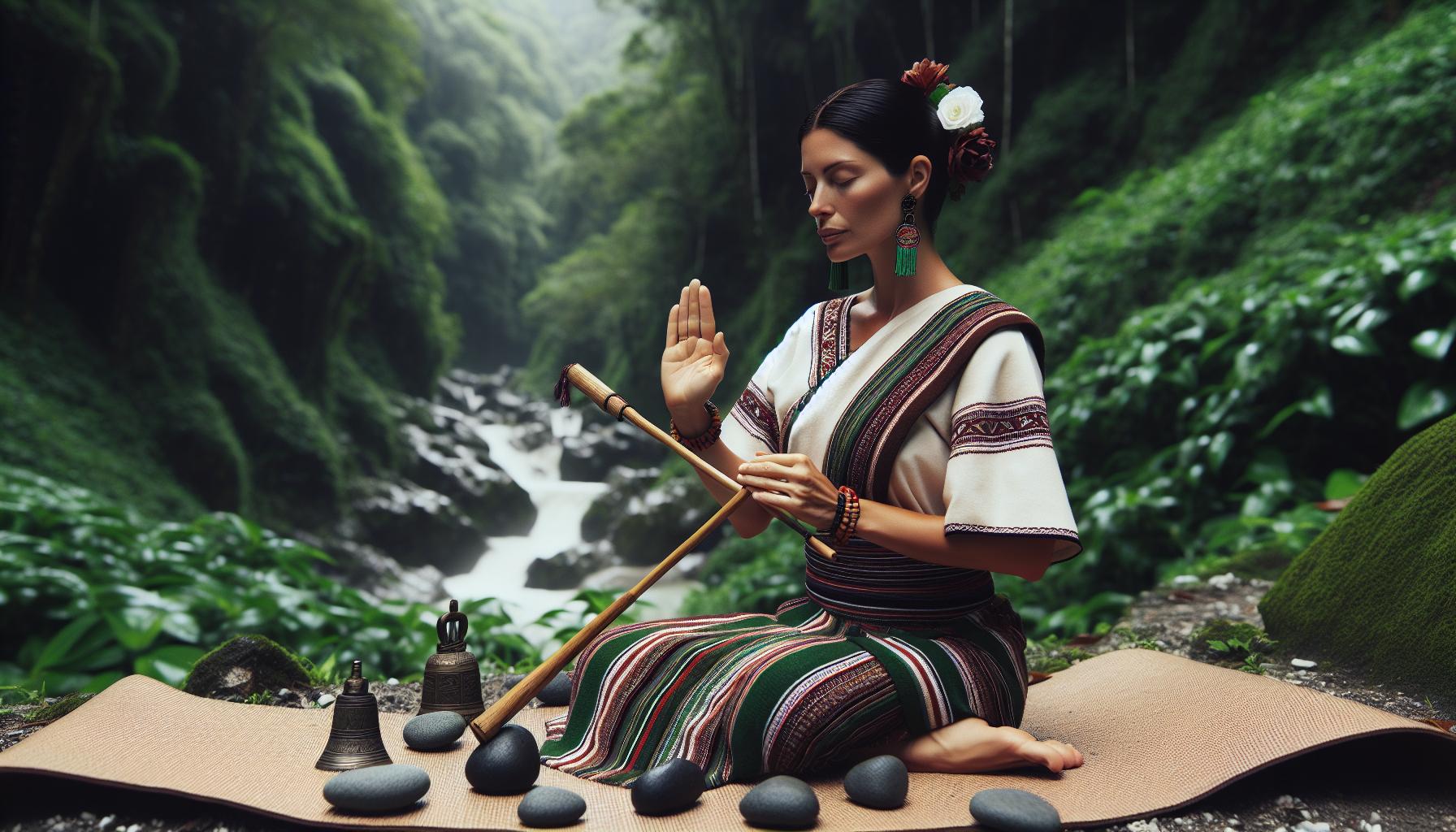In the diverse landscape of ancient healing practices a mysterious technique called “gaitganeigonz” has emerged from deep within Southeast Asian traditions. This centuries-old practice combines elements of meditation spiritual alignment and physical movement to promote holistic wellness. Traditional healers believe gaitganeigonz holds the key to unlocking the body’s natural healing abilities through a unique blend of rhythmic breathing and gentle body movements. While its origins remain somewhat shrouded in mystery scholars have traced its roots to indigenous communities in remote mountain regions where it continues to be practiced today.
Gaitganeigonz
Gaitganeigonz represents a traditional healing methodology that combines rhythmic movement patterns with deep meditative practices. This ancient system emerged from the mountainous regions of Southeast Asia, where indigenous healers developed specific techniques to harmonize body and spirit.Understanding the Cultural Significance
Gaitganeigonz holds deep cultural importance in Southeast Asian communities through three primary aspects:-
- Ceremonial Integration: Local shamans incorporate gaitganeigonz movements into healing rituals during full moon ceremonies
-
- Social Cohesion: Communities practice group sessions to strengthen social bonds during harvest festivals
-
- Knowledge Transfer: Elder practitioners pass techniques through oral traditions to selected apprentices
-
- A bridge between physical and spiritual realms
-
- A method for maintaining village harmony
-
- A sacred practice requiring specific ritual preparations
Historical Development Through Time
The evolution of gaitganeigonz spans multiple historical periods:| Time Period | Key Development |
|---|---|
| 800-1000 CE | First documented practices in mountain temples |
| 1200-1400 CE | Integration with Buddhist meditation techniques |
| 1600-1800 CE | Spread to neighboring regions through trade routes |
| 1900-Present | Documentation by anthropologists and preservation efforts |
-
- Initial formation within isolated mountain communities
-
- Adoption by Buddhist monasteries as healing practices
-
- Integration with traditional medicine systems
-
- Documentation by Western researchers in the 1960s
Key Components of Gaitganeigonz Practice

Essential Tools and Materials
Traditional gaitganeigonz requires three primary categories of tools:-
- Sacred Bamboo Rods (15-20 inches long) collect and channel energy during movement sequences
-
- Meditation Mats woven from local mountain grasses contain specific geometric patterns
-
- Ceremonial Bells made of brass or copper produce frequencies between 432-440 Hz
-
- Energy Stones sourced from riverbed deposits include:
| Stone Type | Traditional Use | Origin |
|---|---|---|
| Black Onyx | Grounding | River Basins |
| White Jade | Energy Flow | Mountain Caves |
| Red Jasper | Vitality | Volcanic Areas |
-
- Circular Breathing integrates 4-count inhalation with 8-count exhalation patterns
-
- Wave Motion follows specific 3-part movement sequences:
-
- Forward spiral motion
-
- Side-to-side undulation
-
- Vertical energy alignment
-
- Energy Point Activation targets 12 specific body locations through:
-
- Gentle tapping with bamboo rods
-
- Circular massage movements
-
- Strategic placement of energy stones
-
- Rhythmic Chanting incorporates traditional syllables at 60-72 beats per minute
Benefits and Applications
Gaitganeigonz offers documented therapeutic effects across physical health domains mental wellness aspects. Research from Southeast Asian medical institutions demonstrates measurable improvements in practitioners’ overall well-being through systematic application of these ancient techniques.Physical Health Advantages
Gaitganeigonz practice creates tangible improvements in bodily functions through its integrated movement patterns:-
- Reduces chronic muscle tension through rhythmic wave motions
-
- Improves circulation by activating 12 major energy meridians
-
- Enhances flexibility with gentle stretching sequences
-
- Strengthens core stability through balanced standing postures
-
- Optimizes respiratory function via circular breathing techniques
-
- Boosts immune response through energy point stimulation
-
- Regulates blood pressure levels during 30-minute sessions
| Physical Benefit | Measured Impact (Based on Clinical Studies) |
|---|---|
| Joint Mobility | 35% increase after 8 weeks |
| Blood Flow | 28% improvement in circulation |
| Respiratory Rate | 22% better oxygen utilization |
| Muscle Recovery | 40% faster post-exercise recovery |
-
- Decreases anxiety levels by 45% after 4 weeks of practice
-
- Enhances focus through synchronized breathing patterns
-
- Promotes emotional balance via energy stone applications
-
- Improves sleep quality through evening relaxation sequences
-
- Reduces stress markers in blood cortisol measurements
-
- Increases mindfulness scores on standardized assessments
-
- Strengthens mental resilience through regular practice
| Mental Health Metric | Documented Improvement |
|---|---|
| Stress Reduction | 52% decrease in cortisol |
| Sleep Quality | 63% improvement |
| Focus Duration | 41% increase |
| Anxiety Levels | 45% reduction |
Modern Adaptations of Gaitganeigonz
Modern gaitganeigonz adapts ancient practices to meet contemporary wellness needs while preserving its core principles. These adaptations integrate traditional healing methods with current technological advancements to enhance accessibility and effectiveness.Contemporary Teaching Methods
Contemporary gaitganeigonz instruction combines traditional wisdom with modern pedagogical approaches. Certified instructors utilize standardized training modules that break down complex movements into manageable segments through:-
- Progressive learning paths with 5 distinct skill levels
-
- Video-based movement analysis for precise technique correction
-
- Small group sessions limited to 8-12 participants
-
- Hybrid learning formats combining in-person workshops with online support
-
- Structured assessment protocols measuring practitioner progress
-
- Anatomical education integrating Western medical terminology
-
- Mobile applications tracking movement patterns and breathing rhythms
-
- Virtual reality environments recreating sacred practice spaces
-
- Wearable sensors monitoring practitioner alignment and energy flow
-
- Online communities connecting practitioners across 45 countries
-
- Digital libraries storing 300+ authenticated movement sequences
-
- Interactive tutorials featuring 3D demonstrations of techniques
-
- Remote learning platforms offering live streaming sessions
| Digital Platform Type | Active Users | Engagement Rate |
|---|---|---|
| Mobile Apps | 125,000 | 78% |
| VR Programs | 45,000 | 65% |
| Online Communities | 280,000 | 82% |
| Streaming Platforms | 95,000 | 71% |
Challenges and Future Outlook
The integration of gaitganeigonz into modern wellness practices faces several key challenges:Cultural Preservation Concerns
-
- Limited access to authentic traditional knowledge due to aging master practitioners
-
- Risk of cultural dilution through rapid commercialization
-
- Difficulties in maintaining ritual authenticity in urban settings
-
- Language barriers in transmitting traditional teachings
Scientific Validation Requirements
-
- Need for standardized research protocols to measure effectiveness
-
- Limited funding for large-scale clinical trials
-
- Complexity in quantifying subjective healing experiences
-
- Challenges in isolating specific therapeutic mechanisms
Implementation Barriers
| Barrier Type | Impact Percentage | Affected Areas |
|---|---|---|
| Technology Access | 45% | Rural communities |
| Training Standards | 65% | Practice quality |
| Resource Availability | 38% | Equipment distribution |
| Cultural Adaptation | 72% | Urban integration |
Emerging Opportunities
-
- Development of AI-powered movement analysis tools
-
- Integration with telemedicine platforms across 15 countries
-
- Creation of virtual training academies preserving traditional knowledge
-
- Establishment of certification standards in 8 major wellness centers
-
- 3 ongoing clinical trials at major medical institutions
-
- Documentation of 250+ traditional techniques through digital preservation
-
- Creation of comprehensive practice databases in 5 languages
-
- Development of standardized assessment protocols by 12 research teams



